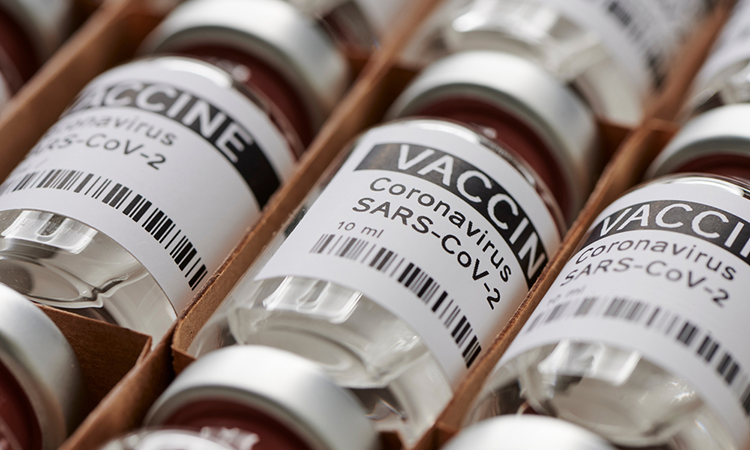MHRA approves Pfizer and BioNTech COVID-19 vaccine
Posted: 2 December 2020 | Victoria Rees (European Pharmaceutical Review) | No comments yet
The UK’s MHRA has given temporary emergency authorisation to Pfizer and BioNTech’s COVID-19 vaccine, making it the first in the world to receive approval.


The UK’s Medicines and Healthcare products Regulatory Agency (MHRA) has approved the world’s first COVID-19 vaccine, produced by Pfizer and BioNTech, for temporary emergency use. According to the UK Department of Health and Social Care, the vaccine will be made available across the UK from next week.
The mRNA vaccine, named BNT162b2, has been granted the first Emergency Use Authorisation (EUA). Pfizer and BioNTech say they are now anticipating further regulatory decisions across the globe in the coming weeks and are ready to deliver vaccine doses following potential regulatory authorisations or approvals.
A Department of Health and Social Care spokesperson said: “The Joint Committee on Vaccinations and Immunisations (JCVI) will shortly publish its final advice for the priority groups to receive the vaccine, including care home residents, health and care staff, the elderly and the clinically extremely vulnerable.”
Pfizer and BioNTech have agreed with the UK government to supply 40 million doses of BNT162b2, which will occur throughout 2020 and 2021. Now that the vaccine is authorised in the UK, the companies will take immediate action to begin the delivery of vaccine doses. The first doses are expected to arrive in the country in the coming days, with complete delivery fulfilment expected in 2021.
“Today’s EUA in the UK marks a historic moment in the fight against COVID-19. This authorisation is a goal we have been working toward since we first declared that science will win and we applaud the MHRA for their ability to conduct a careful assessment and take timely action to help protect the people of the UK,” said Albert Bourla, Chairman and Chief Executive Officer (CEO) of Pfizer. “As we anticipate further authorisations and approvals, we are focused on moving with the same level of urgency to safely supply a high-quality vaccine around the world.”
“The EUA in the UK will mark the first time citizens outside of the trials will have the opportunity to be immunised against COVID-19,” said Dr Ugur Sahin, CEO and Co-founder of BioNTech. “We believe that the roll-out of the vaccination program in the UK will reduce the number of people in the high-risk population being hospitalised. Our aim is to bring a safe and effective vaccine upon approval to the people who need it. The data submitted to regulatory agencies around the world are the result of a scientifically rigorous and highly ethical research and development programme.”
The MHRA’s decision is based on a rolling submission, including data from the Phase III clinical study, which demonstrated a vaccine efficacy rate of 95 percent in participants without prior SARS-CoV-2 infection, measured from seven days after the second dose. The companies say that the vaccine’s efficacy was consistent across age, gender, race and ethnicity demographics, with an observed efficacy in adults age 65 and over of more than 94 percent. In the trial, BNT162b2 was generally well tolerated with no serious safety concerns reported by the Data Monitoring Committee to date.
To assure product quality, the companies have developed specially designed, temperature-controlled shippers for the BNT162b2 vaccine candidate, which can maintain recommended storage conditions (-70°C ±10°C) for extended periods of time without any additional equipment but dry ice. The shipper can maintain temperature for 10 days unopened which allows for transportation to markets globally. Once open, a vaccination centre may use the specially designed shippers as a temporary storage solution to maintain the recommended storage conditions for up to 30 days with re-icing every five days in accordance with the handling instructions. Once thawed, the vaccine vial can be stored for up to five days at refrigerated (2-8°C) conditions.
The companies have filed a request for EUA with the US Food and Drug Administration (FDA) and have submitted the final Conditional Marketing Authorisation Application (CA) following rolling submissions with the European Medicines Agency (EMA) and several other regulatory agencies around the world.
Related topics
Biopharmaceuticals, Distribution & Logistics, Drug Development, Drug Supply Chain, Regulation & Legislation, Research & Development (R&D), Supply Chain, Vaccines
Related organisations
BioNTech, Pfizer, UK Medicines and Healthcare products Regulatory Agency (MHRA)









